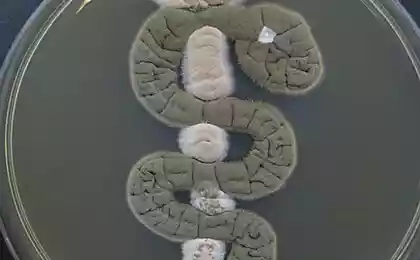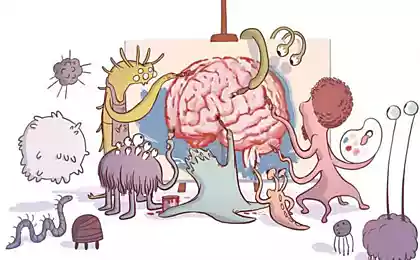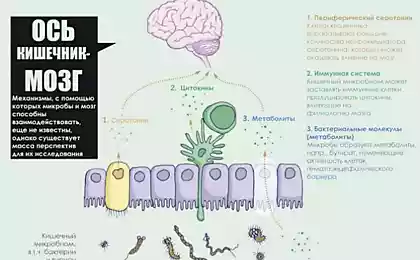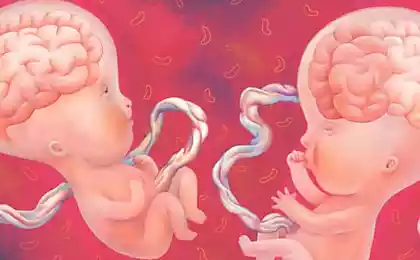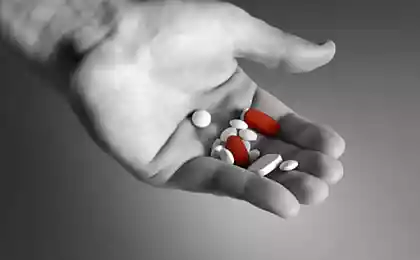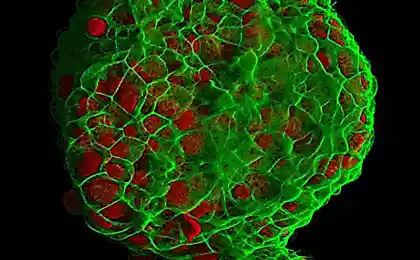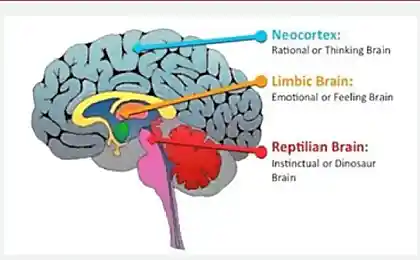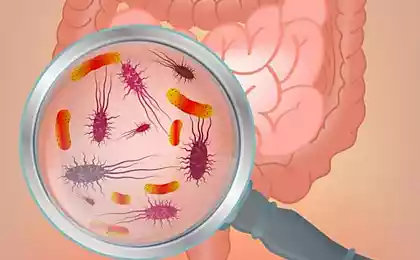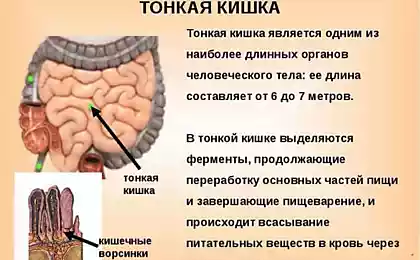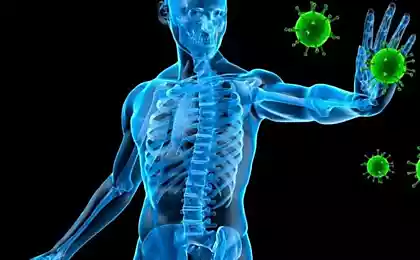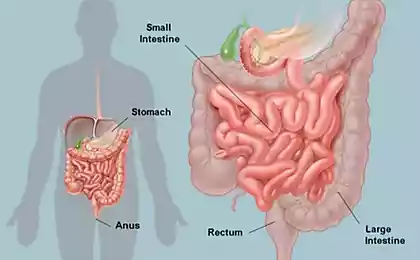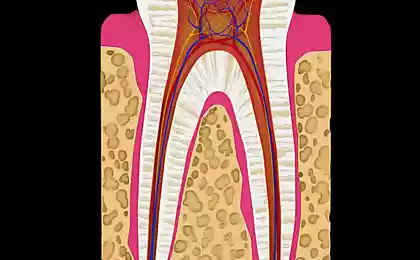470
Caesarean section and autism, the relationship of gut and brain
Neurologists initially sceptical about the link between gut bacteria and brain function — especially in connection with autism. However, under pressure from ever-growing data, they are presented to the public his new vision for the traditional meeting of the Neurological society in November 2014 in the report "Intestinal microbiota and the brain: paradigm shift in neuroscience."
This year the national Institute of mental health has allocated over a million dollars on a new research program aimed at studying the connection between the human microbiome and the brain. Although the correlation between the composition of the gut flora and behavioral States (especially in autism) already mentioned, neuroscientists are only beginning to understand how gut bacteria can affect brain function. The immune system plays a crucial role, says Sargis Margaryan, a microbiologist at the California Institute of technology in Pasadena, is the same as the vagus nerve that connects the brain with the digestive tract. But bacterial waste can also affect the brain — for example, at least two types of intestinal bacterium produce the neurotransmitter γ-aminobutyric acid (GABA).
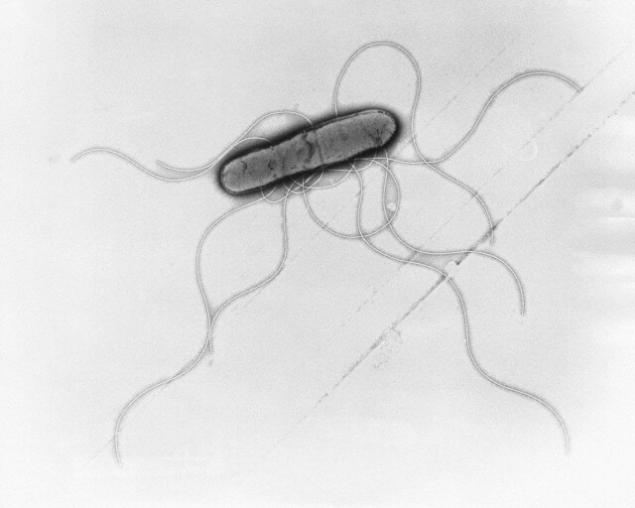
Feeding mice the bacterium Bacteroides fragilis can reverse autism symptoms
The greatest impact of the microbiome on the brain probably occurs early in life, says pharmacologist John krain from University College Cork in Ireland. In the study, which was presented at a neurological meeting, his group found that mice born by caesarean section, compared with mice that received the flora vaginally, was more anxiety and had symptoms of depression. The inability of the animals to vaginal microorganisms from their mothers during birth — the first bacteria commonly faced by the fetus — may cause lifelong changes in mental health, says John.
In addition, a 2013 study conducted in the laboratory Mazmanian, found that mouse models with some features of autism had much lower levels of intestinal bacteria called Bacteroides fragilis than the intestines of normal mice. The researcher also said that, in addition to asocial, these animals had gastrointestinal symptoms, frequently observed in autism. Introduction мышамBacteroides fragilis eliminated autistic symptoms. In addition, the researchers found that the mice with these symptoms had higher levels of bacterial metabolites such as 4-ethylphenylsulphate (4EPS) in their blood, and that the introduction of this chemical in the blood of normal mice caused the same behavioural problems.
The mechanisms for these effects are still unclear. At this scientific meeting, the government presented evidence to show that feeding mice with 4EPS substance causes behavioral problems only if they have increased intestinal permeability that allows the chemical to enter the body through the intestinal wall.
This observation tells us that some people with autism can be supported by such treatments as, for example, probiotics that target the gut, not the brain, which is much more complex and inaccessible organ.
However, even those who are at the forefront of these studies, remains skeptical about the fact that these research results will move to the area drugs specific to humans. The evidence that probiotics affect human behaviour "are, at least, inadequate," admits Mazmanyan. However, according to him, an increasing number of researchers starting to look at some mental illnesses through a microscope. published
P. S. And remember, only by changing their consumption — together we change the world! © Join us at Facebook , Vkontakte, Odnoklassniki
Source: domrebenok.ru/blog/kesarevo-sechenie-i-autizm-svyaz-kishechnika-i-mozga/
This year the national Institute of mental health has allocated over a million dollars on a new research program aimed at studying the connection between the human microbiome and the brain. Although the correlation between the composition of the gut flora and behavioral States (especially in autism) already mentioned, neuroscientists are only beginning to understand how gut bacteria can affect brain function. The immune system plays a crucial role, says Sargis Margaryan, a microbiologist at the California Institute of technology in Pasadena, is the same as the vagus nerve that connects the brain with the digestive tract. But bacterial waste can also affect the brain — for example, at least two types of intestinal bacterium produce the neurotransmitter γ-aminobutyric acid (GABA).

Feeding mice the bacterium Bacteroides fragilis can reverse autism symptoms
The greatest impact of the microbiome on the brain probably occurs early in life, says pharmacologist John krain from University College Cork in Ireland. In the study, which was presented at a neurological meeting, his group found that mice born by caesarean section, compared with mice that received the flora vaginally, was more anxiety and had symptoms of depression. The inability of the animals to vaginal microorganisms from their mothers during birth — the first bacteria commonly faced by the fetus — may cause lifelong changes in mental health, says John.
In addition, a 2013 study conducted in the laboratory Mazmanian, found that mouse models with some features of autism had much lower levels of intestinal bacteria called Bacteroides fragilis than the intestines of normal mice. The researcher also said that, in addition to asocial, these animals had gastrointestinal symptoms, frequently observed in autism. Introduction мышамBacteroides fragilis eliminated autistic symptoms. In addition, the researchers found that the mice with these symptoms had higher levels of bacterial metabolites such as 4-ethylphenylsulphate (4EPS) in their blood, and that the introduction of this chemical in the blood of normal mice caused the same behavioural problems.
The mechanisms for these effects are still unclear. At this scientific meeting, the government presented evidence to show that feeding mice with 4EPS substance causes behavioral problems only if they have increased intestinal permeability that allows the chemical to enter the body through the intestinal wall.
This observation tells us that some people with autism can be supported by such treatments as, for example, probiotics that target the gut, not the brain, which is much more complex and inaccessible organ.
However, even those who are at the forefront of these studies, remains skeptical about the fact that these research results will move to the area drugs specific to humans. The evidence that probiotics affect human behaviour "are, at least, inadequate," admits Mazmanyan. However, according to him, an increasing number of researchers starting to look at some mental illnesses through a microscope. published
P. S. And remember, only by changing their consumption — together we change the world! © Join us at Facebook , Vkontakte, Odnoklassniki
Source: domrebenok.ru/blog/kesarevo-sechenie-i-autizm-svyaz-kishechnika-i-mozga/
